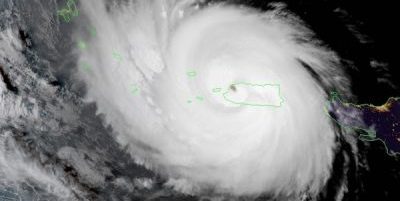Disasters touch many Wilder School interests

 The moment a fire breaks out, a hurricane makes landfall, a tornado touches down, or a trickle turns to a flood, the clock starts on response, recovery and mitigation of the current disaster as well as planning for future events.
The moment a fire breaks out, a hurricane makes landfall, a tornado touches down, or a trickle turns to a flood, the clock starts on response, recovery and mitigation of the current disaster as well as planning for future events.
At the L. Douglas Wilder School of Government and Public Policy, each discipline has a role to play in disaster management and mitigation.
Emergency preparedness plays an important port in mitigating the effects of any disaster. Immediate response teams are set up using the principles of incident management command. Start with the Homeland Security and Emergency Preparedness guide that will lead you to these library databases to study after action reports: Homeland Security Digital Library , Web of Science, and Academic Search Complete.
In the first hour(s), maintenance of order and law enforcement become vital as regular legal structures may fail. Additionally, infrastructure complications can arise from failed power or incompatibility among first responders. To study the criminal justice aspects and police and other legal responses, the Criminal Justice Research Guide organizes databases such as Criminal Justice Abstracts , PsychINFO, and WestLawNext. Best databases to study failures in communications include Web of Science and Communications and Mass Media Complete.
Beyond the first responses, nonprofits play critical roles in immediate disaster relief and ongoing support. This often creates a sense of urgency to donate, however, it is important to note that not all nonprofit organizations are the same and some might operate in a less than ethical way. Nonprofits are not held to the same guidelines as publicly held companies; their tax exempt status is regulated by the federal government’s Internal Revenue Service under IRS Exempt Organizations, so there are some reporting requirements. This information is intended to help people make good donation choices, but it can also be used for research purposes. The Nonprofit Research Guide provides numerous resources for researching nonprofit organizations. These include Charity Navigator, Guidestar and Center on Philanthropy as well as Public Administration Abstracts and Social Services Abstracts.
From the disaster’s first day and well beyond. Issues related to public policy and administration factor in. Public policy, as set by local officials, will determine the speed of normalization as recovery progresses. Studying the best practices in returning children to school, normalizing the traffic flows, and making government function outside disaster mode can improve the response in the future. The Public Administration Research Guide is a good place to start. Databases for studying these public policy effects including ABI/INFORM, Business Source Complete and Public Administration Abstracts.
Disasters also raise issues about Urban and Regional Studies. Disasters expose the weaknesses of populated infrastructures. Although the costs of catastrophes are often measured in loss of life or property, the impacts go far beyond that in terms of restoring an area to its former state. Urban and Regional Planning research about disasters can be found in the Urban Planning Research Guide and in these databases: Urban Studies Abstracts, Index to Current Urban Documents and Access World News.
by Pattie Sobczak, business and public policy collections librarian and Stephani Rodgers, Iiaison to homeland security and emergency preparedness
Image: Hurricane Maria Makes Landfall in Puerto Rico from Wikimedia Commons
Categories Update